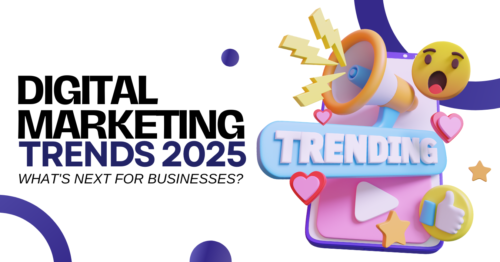For years, Search Engine Optimization (SEO) has been the cornerstone of digital marketing strategies. But with the rapid rise of AI-driven search engines like Google’s Search Generative Experience (SGE) and AI assistants such as ChatGPT, a burning question arises: Is SEO dead? The answer is not as simple as yes or no. Instead, SEO is evolving into a new era—one where content quality, user intent, and AI optimization dictate success.
In this article, we explore how SEO is shifting, what businesses must adapt to, and how we can survive—and thrive—in the AI-first search landscape.
The Myth of SEO’s Death
Every few years, digital experts claim that SEO is dead, yet it continues to evolve. What has truly changed is how search engines interpret content and how users seek answers. Traditional SEO tactics like keyword stuffing, spammy backlinks, and shallow blog posts are no longer effective. Instead, search engines rely on machine learning algorithms that prioritize:
- Content relevance over keyword density.
- User satisfaction metrics such as click-through rate, dwell time, and bounce rate.
- Semantic search that understands context, not just exact phrases.
SEO is not dead—it’s simply being reborn in the era of AI.
The Rise of AI-First Search Engines
Artificial intelligence is no longer a futuristic concept—it is the engine that powers modern search. With tools like Google’s Bard, Bing’s AI Chat, and OpenAI’s ChatGPT, the way users find information has fundamentally changed. Instead of scrolling through multiple websites, users now receive direct answers in conversational form.
This means that businesses must optimize not only for keywords but also for AI readability. The AI-first search model pulls from vast content libraries to deliver summarized, authoritative responses. If our content is not structured an
Why Traditional SEO Strategies Fall Short
The strategies that once guaranteed rankings are losing power. Some examples include:
- Keyword Density – Repeating keywords excessively now harms rankings. AI-driven algorithms value natural language over forced optimization.
- Backlink Quantity – Links still matter, but quality and authority outweigh sheer numbers. AI can detect link manipulation faster than ever.
- Thin Content – Articles written just to target a keyword with 500 words no longer rank. AI favors comprehensive, authoritative, and well-structured content.
- Exact Match Domains – Having a keyword in your URL no longer provides a massive edge. Content credibility is now the deciding factor.
Simply put: Old SEO is dead, but smart SEO is alive and thriving.
The Future of SEO in an AI-First World
To remain competitive, we must adapt to AI-first search. The new SEO requires a focus on E-E-A-T (Experience, Expertise, Authoritativeness, Trustworthiness), AI-structured content, and user-first engagement.
1. Conversational Search Optimization
People now search using natural language queries. Instead of typing “best Italian restaurant Delhi,” they might ask, “Where’s the best place for authentic Italian food near me?” Our content must mirror conversational tone and answer these long-tail, intent-driven queries.
2. AI-Friendly Content Formatting
AI tools scan and digest content differently than humans. To optimize, we should use:
- Clear headings and subheadings with keyword variations.
- Bullet points and numbered lists for digestible answers.
- Structured data (Schema Markup) to help AI categorize content effectively.
3. Voice Search and Mobile Optimization
With AI assistants like Siri, Alexa, and Google Assistant, voice queries are skyrocketing. Optimizing for spoken queries means writing in a conversational, direct, and concise style. Coupled with mobile-first design, this ensures content is ready for voice-based AI search.
4. User Experience (UX) as a Ranking Factor
AI search algorithms prioritize websites with superior UX. That includes:
- Fast-loading pages
- Mobile responsiveness
- Minimal intrusive ads
- Secure HTTPS encryption
When the user is happy, AI interprets our content as trustworthy and valuable.
Content is the New SEO Currency
In the AI era, content truly reigns supreme. But not just any content—high-quality, in-depth, and value-driven content. Here’s what works now:
- Topical Authority: Cover a subject extensively, not just surface-level. Build clusters of related articles to signal expertise.
- Human + AI Balance: AI can help generate ideas and outlines, but human insight, storytelling, and perspective make content unique.
- Evergreen Content: Create guides, FAQs, and resources that stand the test of time, while updating regularly to stay relevant.
- Interactive Media: Infographics, videos, and visuals enhance engagement and boost ranking signals.
If AI can recognize our content as authoritative and useful, it will feature it in search summaries and responses.
The Role of E-E-A-T in AI Search
Google has doubled down on E-E-A-T as a ranking principle:
- Experience – Showcasing real-world expertise in a topic.
- Expertise – Demonstrating subject-matter knowledge.
- Authoritativeness – Building credibility through brand reputation and high-quality references.
- Trustworthiness – Ensuring accuracy, transparency, and reliability.
This framework ensures that AI-driven engines highlight credible sources and filter out low-quality content. Businesses must build authority through consistent, expert-driven publishing.
How to Survive and Thrive in the AI-First SEO Landscape
To adapt, we must transform our SEO strategy into an AI-aligned content marketing approach. Here are actionable steps:
- Understand User Intent – Move beyond keywords to why the user searches. Deliver answers that align with their intent.
- Create Conversational Content – Write in a way that sounds natural, as if responding in a dialogue.
- Optimize for Featured Snippets & AI Summaries – Format answers clearly so AI can pull content directly.
- Leverage Structured Data – Use schema markup to help AI understand our content’s context.
- Invest in Long-Form, In-Depth Content – Articles over 1,000 words with comprehensive analysis outperform thin content.
- Monitor AI Trends – Stay updated with how tools like SGE, Bard, and ChatGPT evolve.
Conclusion: SEO Isn’t Dead, It’s Reborn
SEO is not vanishing—it’s transforming into AI-driven search optimization. Businesses that cling to outdated methods will fade, but those who adapt to conversational search, AI-readability, and user intent will thrive.
Follow Us | Our Services | Contact Us | Linkedin | Instagram







